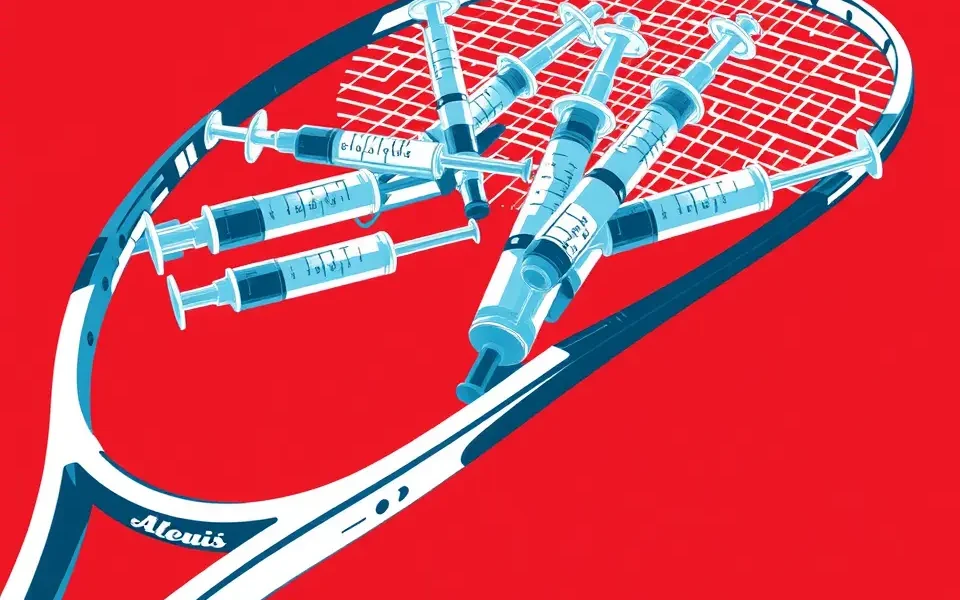The claims of doping against tennis stars Jannik Sinner and Iga Swiatek have stirred considerable debate within the tennis community. Both players, who have held the World No. 1 ranking, faced scrutiny after testing positive for banned substances. These cases have prompted discussions about transparency, fairness, and the consistency of the anti-doping system in tennis.
Doping Allegations Against Sinner and Swiatek
Jannik Sinner
In March 2024, Jannik Sinner tested positive twice for clostebol, an anabolic steroid. The International Tennis Integrity Agency (ITIA) determined that Sinner was not at fault, accepting his explanation that the substance entered his system inadvertently through contamination during a massage. His physiotherapist had used a spray containing the steroid to treat a cut on his hand and subsequently massaged Sinner.
Despite the ITIA’s initial ruling, the World Anti-Doping Agency (WADA) appealed the decision, seeking a ban of one to two years. Ultimately, Sinner and WADA reached an agreement, and Sinner accepted a three-month ban. He was suspended from February 9 to May 4, 2025, making him eligible to compete in the French Open. WADA affirmed that Sinner did not intend to cheat and that the clostebol exposure did not enhance his performance. They attributed the violation to the negligence of his support team.
Iga Swiatek
Iga Swiatek tested positive for trimetazidine (TMZ), a banned heart medication, in an out-of-competition sample in August 2024. The ITIA accepted Swiatek’s explanation that the positive test resulted from contamination of a non-prescription melatonin medication she was taking for jet lag and sleep issues. She received a one-month suspension, causing her to miss three tournaments in Asia and lose her top ranking. Swiatek served the suspension in November and December 2024.
Reactions and Controversy
Nick Kyrgios’s Criticism
Nick Kyrgios has been a vocal critic of the handling of the doping cases involving Sinner and Swiatek, calling the situation “disgusting” for tennis. He argued that having two world No. 1 players “getting done for doping is a horrible look” for the sport. Kyrgios expressed concern over the lack of transparency and the potential for a two-tiered system where star players receive preferential treatment.
Differing Opinions and Support
Other figures in tennis have weighed in on the issue. Novak Djokovic questioned the disparity in treatment between Sinner and Swiatek compared to other players facing similar circumstances. Simona Halep also expressed confusion, regarding the different treatments. Serena Williams suggested that she would have faced a much harsher penalty if she had a similar doping violation.
However, Coco Gauff voiced her support for Swiatek, stating that she did not believe Swiatek intentionally cheated and that Swiatek’s confidence had not been diminished by the case. ITIA chief executive Karen Moorhouse clarified that Swiatek’s violation was a breach of rules rather than an attempt to cheat.
Transparency and Impact on Tennis
The doping cases involving Sinner and Swiatek have raised broader questions about the cleanliness of tennis and the effectiveness of its anti-doping policies. Some have criticized the lack of transparency surrounding the cases, particularly the timing of the announcements. Tennis Channel analyst Jason Goodall accused Swiatek of a “blatant lie” regarding the reason for her absence from tournaments. Zimbabwe’s top-ranked tennis player, Benjamin Lock, claimed that tennis is “not a clean sport at the moment”.
Despite the controversies, both Sinner and Swiatek have continued to perform at a high level. Sinner won Wimbledon in 2025 after serving his ban, while Swiatek has remained a top contender in major tournaments.








No Comment! Be the first one.